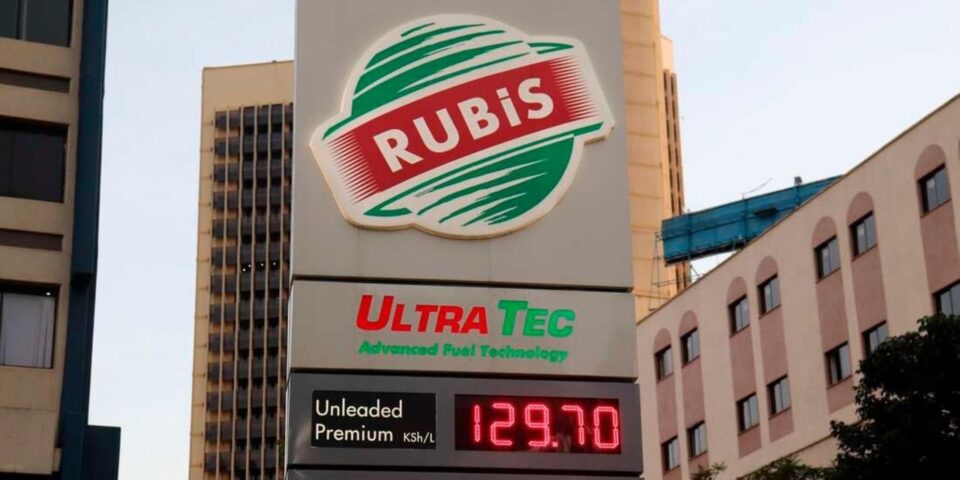Tullow Oil’s discovery of oil and gas in Kenya in 2012 provided Kenya with a fantastic opportunity to establish itself as an economic hub.
However, the finding is fraught with difficulties, including a lack of capacity, political agitation, a sluggish income collection system, corruption, and negative environmental issues, just to name a few.
Now, queues continue to grow in various parts of the country due to oil shortage.
Last week, Oil Marketing Companies (OMC) were hoarding fuel in an apparent attempt to force the government to release Sh34,446,813,295 for the fuel stabilisation programme aimed at cushioning Kenyans from the high cost of fuel.
Since March 2021, the government has been covering marketers’ margins with funds from the petroleum development fee as a way to protect consumers from rising international crude prices under the petrol price stabilization mechanism.
However, following Russia’s invasion of Ukraine, which raised benchmark global oil prices to highs not seen since 2014, the mechanism has been under significant strain in the recent month.
Documents in our possession show that corruption in the oil sector did not just begin with the current fuel shortage that is also being experienced in the UK.
An audit report conducted between January 2018 and March 2019 shows how oil companies cover up loss of fuel at the Mombasa Joint Terminal (MJT) Shimanzi.
The audit shows that Total Kenya and Kenol Kobil (now Rubis) stock take differed with that of MJT through its accounting system known as Petro.
Kenol Kobil uses Oracle software while Total uses SAP for dispatch.
The audit shows that the data entered during the said period differs with that entered in Petro.

For example, Super Petro audit report deliveries were 64,290,596 litres for both companies while MJT tabulated 65,215,603 litres. The unexplained loss is 925,007 litres.
For diesel, the companies entered 160,365,373 litres as stock while the audit shows that 160,605,445 litres were available. At least 240,072 litres were unaccounted for.
As for, heavy fuel oil (HFO) the oil companies recorded 158,583,959 litres while MJT tabulated 157,870,555 litres. In this case, 713,404 litres could not be accounted for.
Kerosene deliveries were entered as 25,611,615 litres but MJT recorded 25,612,792 litres. A total of 1,177 litres were lost.
“Overall the above contributed to lower operational loss which reduced from 2,217,430L to 1,471,809L (-0.36% of the throughput volume),” the audit reads.
The differences noted for Kenol Kobil were attributed to high number of double invoicing and reversals within Oracle. This was following the examination of two separate data; one from Oracle and the other from Petro.
On the Total side, data retrieved from SAP, the audit says, could not be interpreted alongside that from Petro.
Unexplained Losses/ Cover Up
In January 2018, the data entered on both Kenol Kobil’s Oracle software differed with that on Petro. In this month only, at least 1,579,948 litres were lost in unscrupulous ways.

In February 2018, the oil companies on the spot used the following trucks to transport fuel:

On August 13, 2018, 379,248 litres of diesel were lost as evidenced by the MJT operations report. The Opening stock for this particular day was reduced to 4,030,337 compared to
closing stock of 4,408,095 on August 10, 2018.
Similarly, on August 17, 2018, at least 271,688 litres of diesel could not be accounted for. Data from MJT showed that the opening stock on the said day was reduced to 3,244,951 litres compared to
closing stock of 3,516,639 litres the previous day.
Still on the same day, 146,934 litres of kerosene were lost. The Opening stock on the said day was reduced to 2,472,079 litres compared to closing stock of 2,619,013 litres on August 16, 2018.
Again, on August 31, 2018 there was a loss of 143,531 litres of kerosene. The Opening stock on that day was reduced to 4,158,857 litres compared to closing stock of 4,339,839 litres recorded the day before.
Between September 28, 2018 and October 1, 2018 there was a loss of 170,410 litres of diesel. The opening stock was 1,613,388 litres compared to physical closing stock of 1,783,798 litres on September 28, 2018.
During this period, MJT reconciled 312,812 litres that were not captured by Total Kenya. The fuel was loaded on the following trucks:
The following are the trucks used by Kenol Kobil but the data not captured on the Oracle software:

On Tuesday, the Nation revealed that Rubis is one of the oil marketers being investigated by the government over the current fuel shortage yet stock is available at their supply depots.
Those privy to the goings-on told the daily that Rubis is under scrutiny over “unreliable supplies”.
“We have surveyed outlets across the country and Rubis stands out as having some queer shortages and rationed sales,” a government official is quoted by the Nation.
“It’s worthy [noting] that other big marketers, such as Vivo and TotalEnergies, have sold a lot of products over the past two weeks and the discrepancy in product availability in outlets operated by particular marketers is a matter we’re concerned about,” they added.
The Nairobi Joint Depot (NJD), from where both Rubis and Total acquire their supplies, had sufficient product stocks by late last week, according to statistics from the Energy and Petroleum Authority (Epra). The NJD had 1.59 million litres of petrol and 4.43 million litres of diesel products by Thursday last week.
Still on Thursday, Epra inventory revealed that the country had a total supply of 212 million litres of petrol and 188 million litres of diesel, but marketers only took roughly 9.5 million litres of petrol and 11 million litres of diesel for sale locally and for export.
There's no story that cannot be told. We cover the stories that others don't want to be told, we bring you all the news you need. If you have tips, exposes or any story you need to be told bluntly and all queries write to us [email protected] also find us on Telegram

